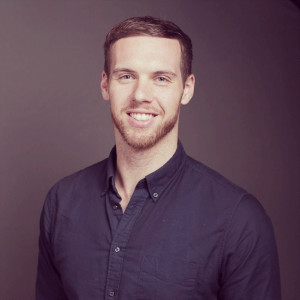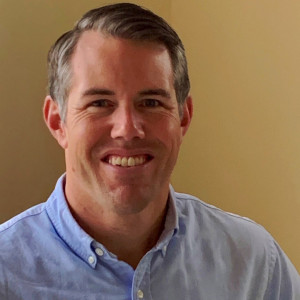How do you avoid burnout?
Interview with Shivani, a remote content writer who shares lessons learned
A good night’s sleep: I try to get eight hours’ sleep every night, so I’m awake and alert and ready to start my day! Sleeping badly just means I can’t focus and, over time, will fall ill.
Working out: This is the most important thing for me to avoid burnout. I run and lift weights, and I occasionally swim. When I’m at the gym, my phone is on airplane mode. It’s brilliant to help clear my head and give me an hour a day to just focus on myself and not on work or anything else. That hour every day translates into a better mood, better health, and a better night’s sleep. Endorphins are a wonderful thing!
After-work activity: I always have something to look forward to at the end of the day.
Whether it’s spending time with friends or family, or a book I can’t wait to get back to, I make sure to have something planned that makes me want to get up from my desk every evening.
Bonus points if it doesn’t involve my laptop or phone.
Minimum notifications: The only notifications on my phone are for calls, WhatsApp, and Todoist, and when I’m doing deep work, I put my phone face down, so I don’t even see those. I don’t have notifications set up for anything else. I have to manually check email, Slack, Notion, Twitter, etc. to see if there’s something for me. On my laptop I have zero notifications. It’s amazing how stress-free I feel when my phone isn’t constantly pinging.
Shivani provides all you need to know about making remote work...work. She shares tips on finding the best remote work opportunity and thriving once you get it.
Read full interview from Interview with Shivani, a remote content writer who shares lessons learned.
Interview with Stefan, a founder building a location-independent startup
I consciously take time to socialize and spend time with my partner. Most days, I do my best to turn off around six-ish and focus on being a human.
Also, prioritizing the gym 2-3x a week helps me stay healthy and maintain perspective.
Stefan now has total control over his time since leaving the traditional office in early 2019. Hear how his routine is helping him build a solid remote startup.
Read full interview from Interview with Stefan, a founder building a location-independent startup .
Interview with Molood, a CEO who shares how minimalism has improved her remote work experience
I exercise regularly, and I connect with family and friends regularly. Even though I do not meet people in person most of the time, I am connected and feel emotionally fulfilled.
I also take 2-3 days every week in which I do not work at all. I only relax, read, exercise, do some chores around the house, or do nothing at all.
If I feel that I am getting close to burnout, I simply delegate my work to my fantastic team and take a day or two off. I ask my employees to do the same.
We are there for each other in the company, and that is how we all dare to talk about overwhelm, family problems, etc. and ask for other members of the team to be there for us.
As one of the people who worked for me once said, “Remote Forever feels like a well-functioning family.”
As CEO and Founder of Remote Forever, Molood has made a career in teaching individuals and companies how to work remotely effectively. See how embracing a minimalist lifestyle has caused her to excel.
Read full interview from Interview with Molood, a CEO who shares how minimalism has improved her remote work experience.
Interview with Alexandra Cote, a remote digital marketer and freelancer
I'll leave here a list of ideas you can go through that I've also tried and might be of help to you:
- Talk to a close friend or just a psychologist.
- Change your job.
- Create and schedule free time even when you don't feel like you need a break.
- Sleep more and sleep in.
- Meditate before going to sleep.
- Find the main goals that will make you happy in life and do your best to achieve them.
Alexandra juggles freelancing, a full-time remote job, YouTube, and Skillshare instructing. How does she manage it all? Find out in her interview.
Read full interview from Interview with Alexandra Cote, a remote digital marketer and freelancer.
Interview with Andrew, co-founder and CEO of Insured Nomads
Ever since I had open-heart surgery due to stress, I have had the mantra of ‘hurry is my enemy.’
I must enjoy the kids, take time for family needs and my own needs unless I want to burn out emotionally and physically again.
Andrew, co-founder, and CEO of Insured Nomads talks traveling while working, productivity tools, and the best advice he has received.
Read full interview from Interview with Andrew, co-founder and CEO of Insured Nomads.
Interview with Paul, a remote product designer who has found his zen
I’ve burnt out before, so I can more readily recognise the signs if and when the flame starts to flicker.
For me, it’s taking a break by getting out in nature every day, exercising, meditating, or practicing gratitude.
The COVID-19 pandemic drove Paul to embrace remote work. See how he has adapted his routine to this new normal, and the one tool that keeps him organized.
Read full interview from Interview with Paul, a remote product designer who has found his zen .
Interview with Saibu, an HR content writer for a remote company
Taking breaks in-between work is key for me. The thing is, that break isn’t something I take to play a game or just sit in my room. It has to be an activity, like taking a walk or a house chore.
Hear how Saibu, a thriving HR content writer, navigates the complexities—and perks—of working with a remote team from Ghana.
Read full interview from Interview with Saibu, an HR content writer for a remote company.
Interview with Kirsten and Jay-Allen, remote team coaches & collaboration experts
With remote working, especially when working in your home, it’s too easy sometimes to blend your work and home life. Establishing boundaries for yourself is very important. For example, what hours will you work each day? Will you stick to that if nothing urgent comes along?
When your workday ends, that might mean closing your laptop and switching off, leaving work mode, not checking emails or messages.
It might also be necessary to schedule break time.
There have been many times when we have found ourselves in back to back meetings with no space to even eat during the day.
Remote team coaches, Kirsten and Jay-Allen, offer three pieces of advice for new remote workers and reveal the one question every remote job seeker should prepare to answer.
Read full interview from Interview with Kirsten and Jay-Allen, remote team coaches & collaboration experts.
Interview with Tyler, a director of customer success models how to start a remote work career
I know I am biased, but I think using a time tracking tool is really helpful. When I am working, I track my time. When I am not working, I don't.
It really helps me to know how much I've already worked in a day, week, month, etc.; if it's Thursday AM and you've already tracked 45 hours that week... uh oh. Having that little bit of friction to have to track time really helps separate things.
From networking to land a remote work gig, to building out an exceptional remote work tool stack, Tyler has quickly figured out how to thrive in remote work. See his tips for starting strong.
Read full interview from Interview with Tyler, a director of customer success models how to start a remote work career.
Interview with Marian, a nomadic social media manager and day trader
I try to eat healthily, drink more water, and balance my sleep.
Day trading & virtual assisting has allowed Marian to see the world—in this interview, she lays out her routine and priorities for those thinking of traveling while working.
Read full interview from Interview with Marian, a nomadic social media manager and day trader.









